race to the bottom in corporate taxation
A story of love, passion and jealousy between multinationals and countries in the European Union
Javier Garcia-Bernardo
University of Amsterdam
ISA 2018





>15k jobs
~€300 million in tax
5% tax rate outside US


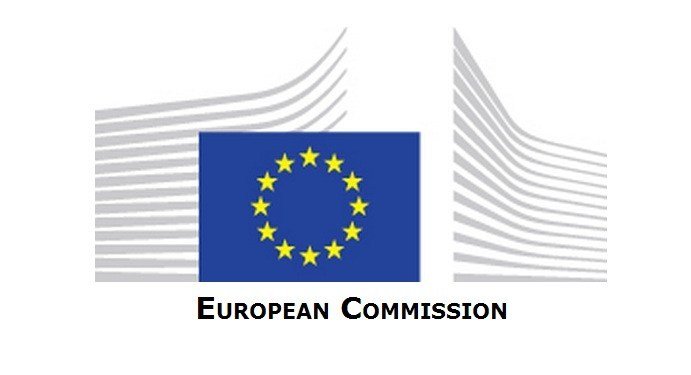
6.25% CIT under a new “knowledge development box"



1. LOVE:
benefits for companies and countries
2. the secret(s) of love:
factors affecting investment
3. tax competition:
race to the bottom and who to blame
4. effects
OUTLINE
1. love

Description of who wins what
1. benefits for companies
corporations pay less tax



1. benefits for companies
especially for those some countries



1. benefits for companies
tax incentives are also increasing


1. benefits for countries
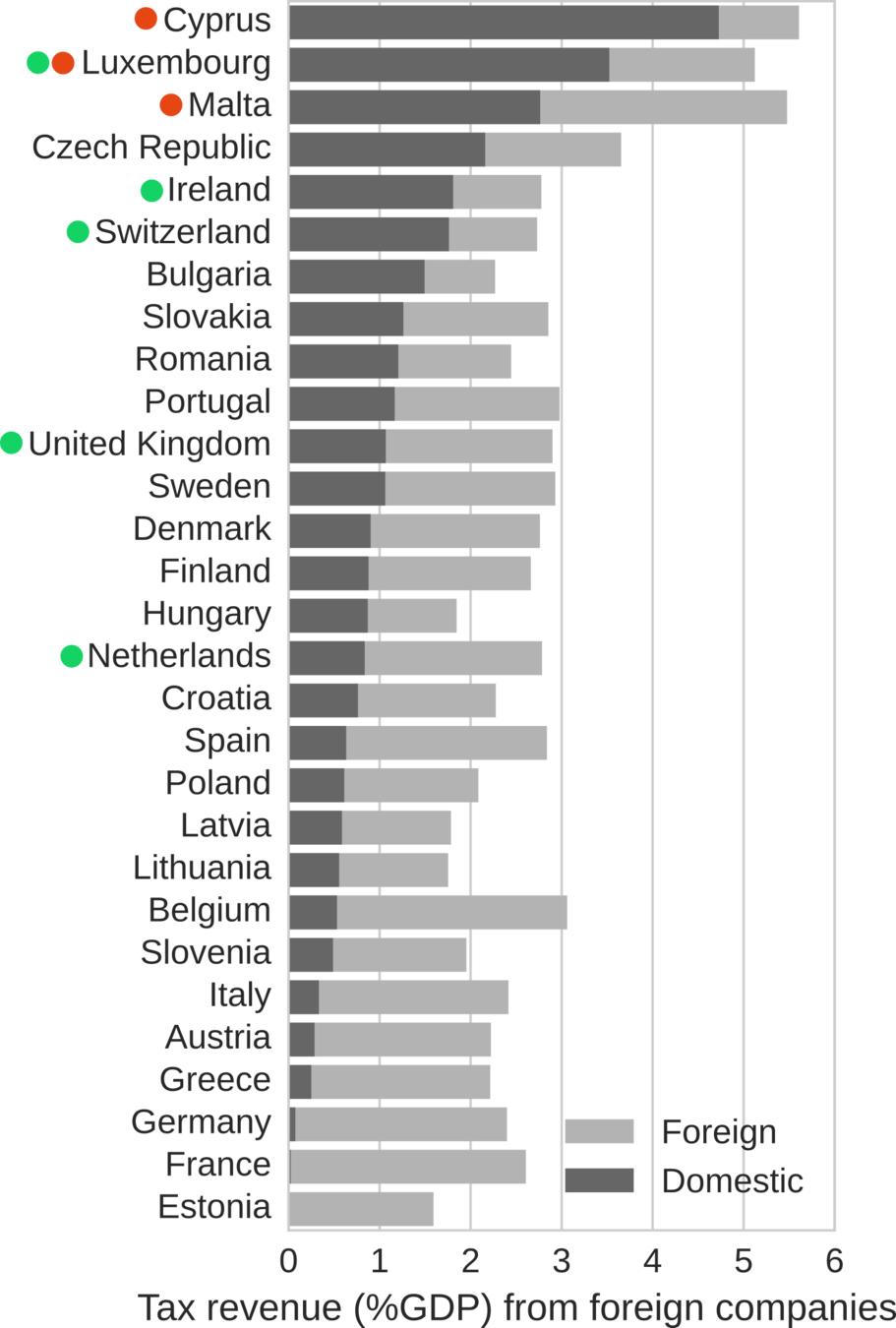
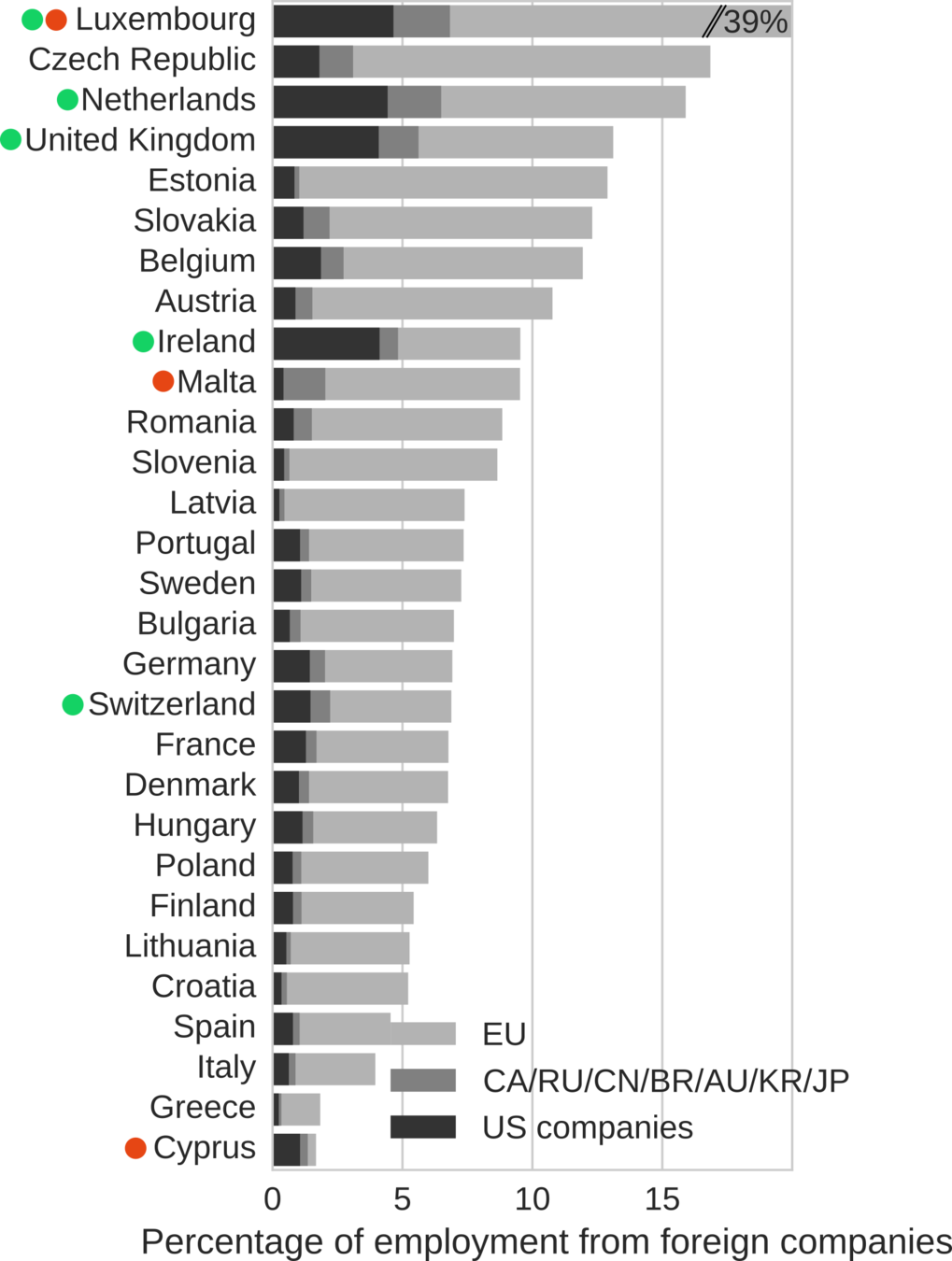
2. the secret(s) of love
Factors affecting investment



2. the effect of tax

CIT:
↓ FDI in 1995-2007: ↑CIT by one unit --> ↓FDI by 3.3%
↑ tax revenue: ↑CIT by one unit --> ↑0.008 GDP in tax revenue
Correlated with: ↑GDP growth and ↓foreign labor force
WHT royalties/interests:
↑ tax revenue: ↑WHT by one unit --> ↑0.002 GDP increase
Correlated with: ↑conduit investment
Anti-avoidance:
↑ GDP growth: ↑1 more anti-avoidance --> ↑0.127 GDP growth rate
↑ tax revenue: ↑1 more anti-avoidance --> ↑0.017 GDP in tax revenue
Correlated with: ↓sink and ↓conduit investment
Tax incentives:
↑ GDP growth: ↑1 more tax incentive --> ↑0.25 GDP growth rate
Correlated with: ↑sink and ↑conduit investment
3. tax competition

Countries have incentives to reduce tax Does it create a race to the bottom? Who is to blame? Focus on CIT (for now)
3. `optimal' tax rate
small countries are better with low taxes
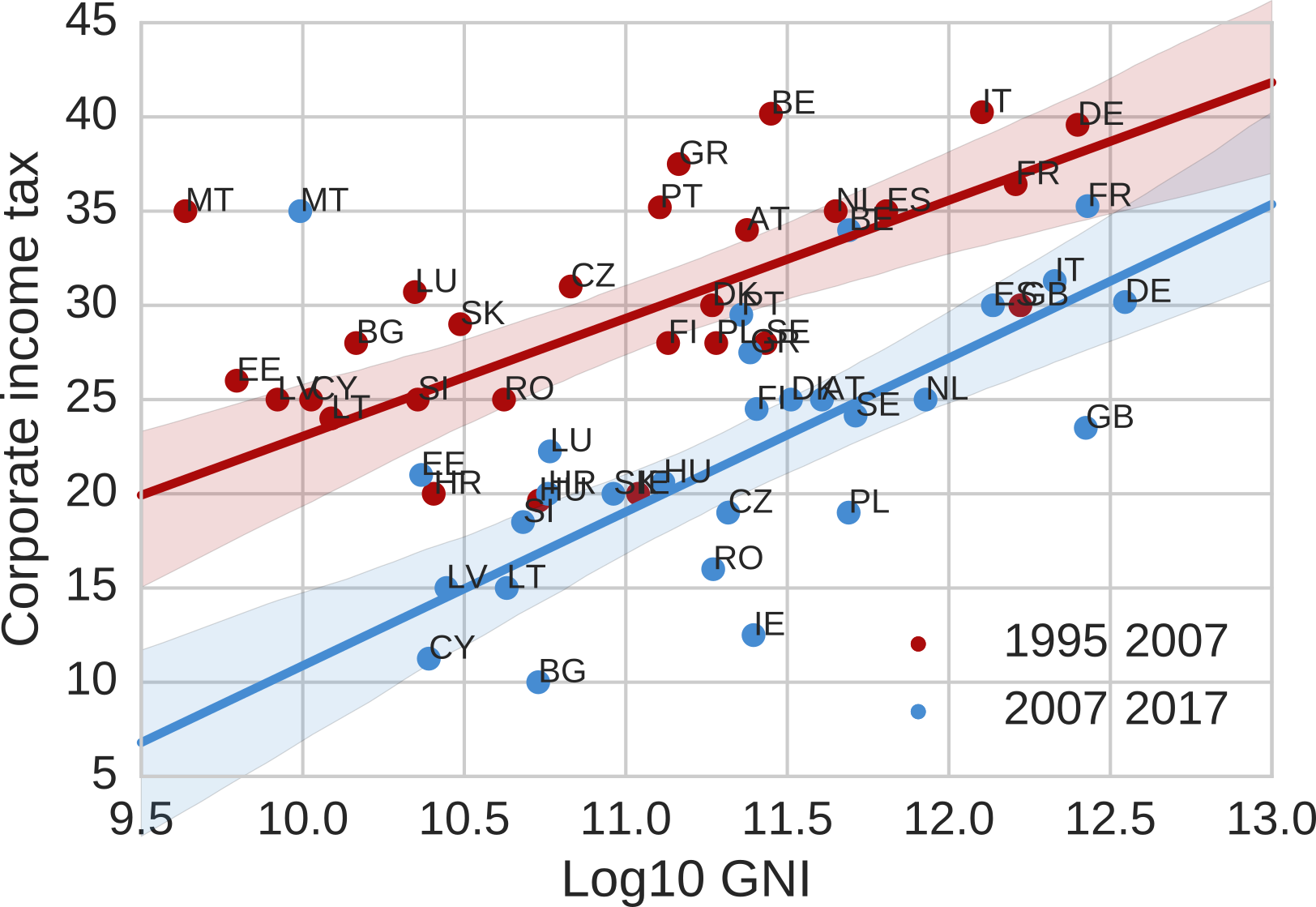
different countries reducing taxes

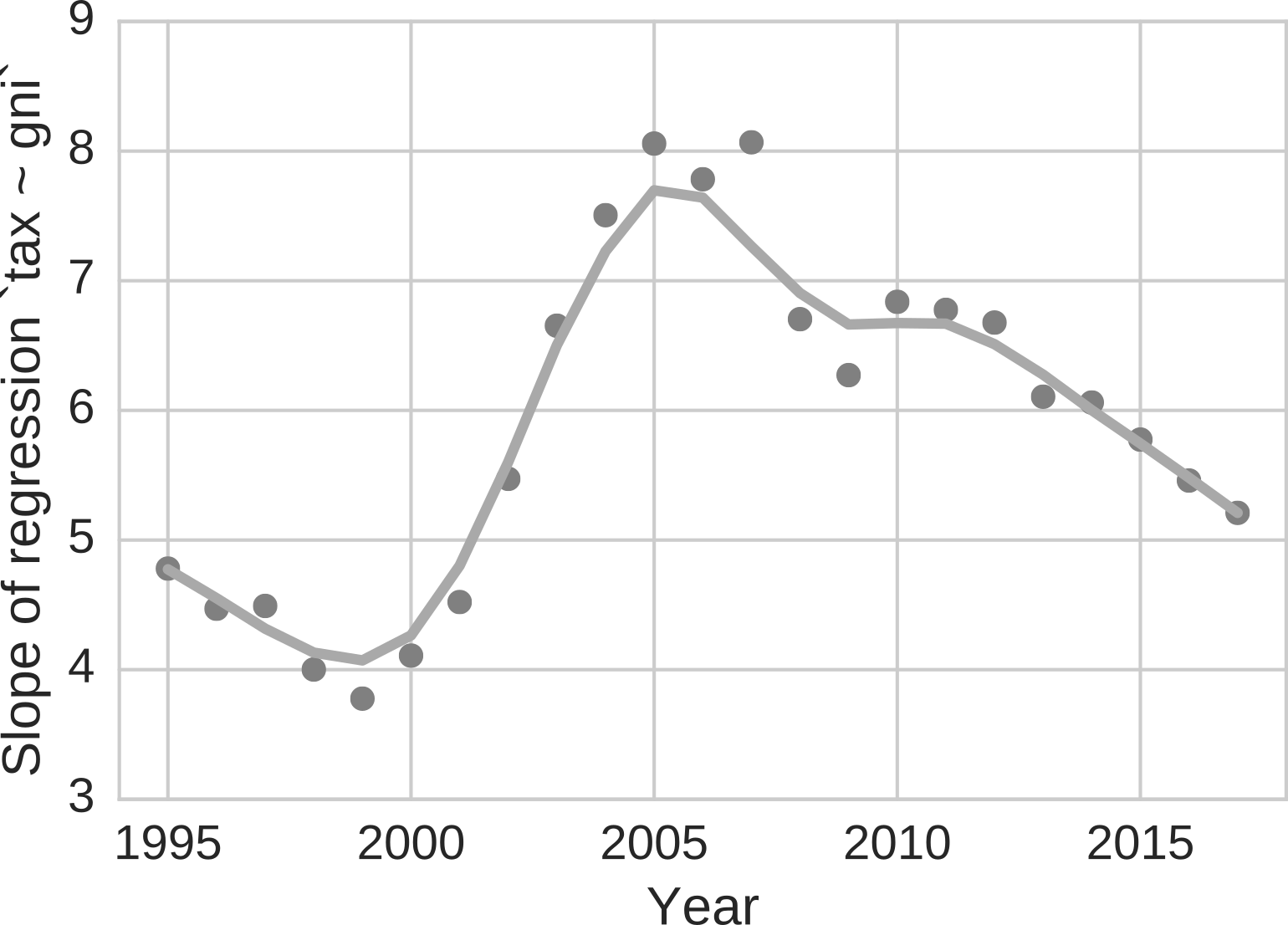
3. who reduces taxes


Pioneers:
- Ireland ('00,'01,'02,'03)
- UK ('97,'12,'14)
- Poland ('00,'03)
- Bulgaria ('05,'07)
- Hungary ('04,'17)
- Romania ('00,'05)
- Lithuania ('02,'08)
- Latvia ('04)
- Poland ('04)
- Slovakia ('04)
- Cyprus ('03)
pioneers and followers
3. race to the bottom
4. effects

Pioneers reduce taxes to attract/retain competitive advantage
Followers follow to keep their companies from leaving
4. effects
burden transferred to consumption


4. effects
government deficit


4. recap
- LOVE:
- Countries have incentives to attract multinationals (jobs/revenue)
- MNEs have incentives to invest in countries with low tax rates.
- TAX COMPETITION:
- Small countries have higher incentives, but also some other countries can gain a comparative advantage from reducing taxes. For the case of CIT:
- Eastern Europe: Attract real investment from Europe
- Ireland / UK: Attract mainly US multinationals
- Other taxes/incentives: CY/MT/LU --> Low regulations. NL --> WHT
- Small countries have higher incentives, but also some other countries can gain a comparative advantage from reducing taxes. For the case of CIT:
- EFFECTS:
- They drag the rest of the countries in a race to the bottom.
- Increasingly lower CIT rates (e.g. cuts in NL and UK).
Javier Garcia-Bernardo
garcia@uva.nl / @javiergb_com
thanks!

deck
By Javier GB
deck
- 1,437



